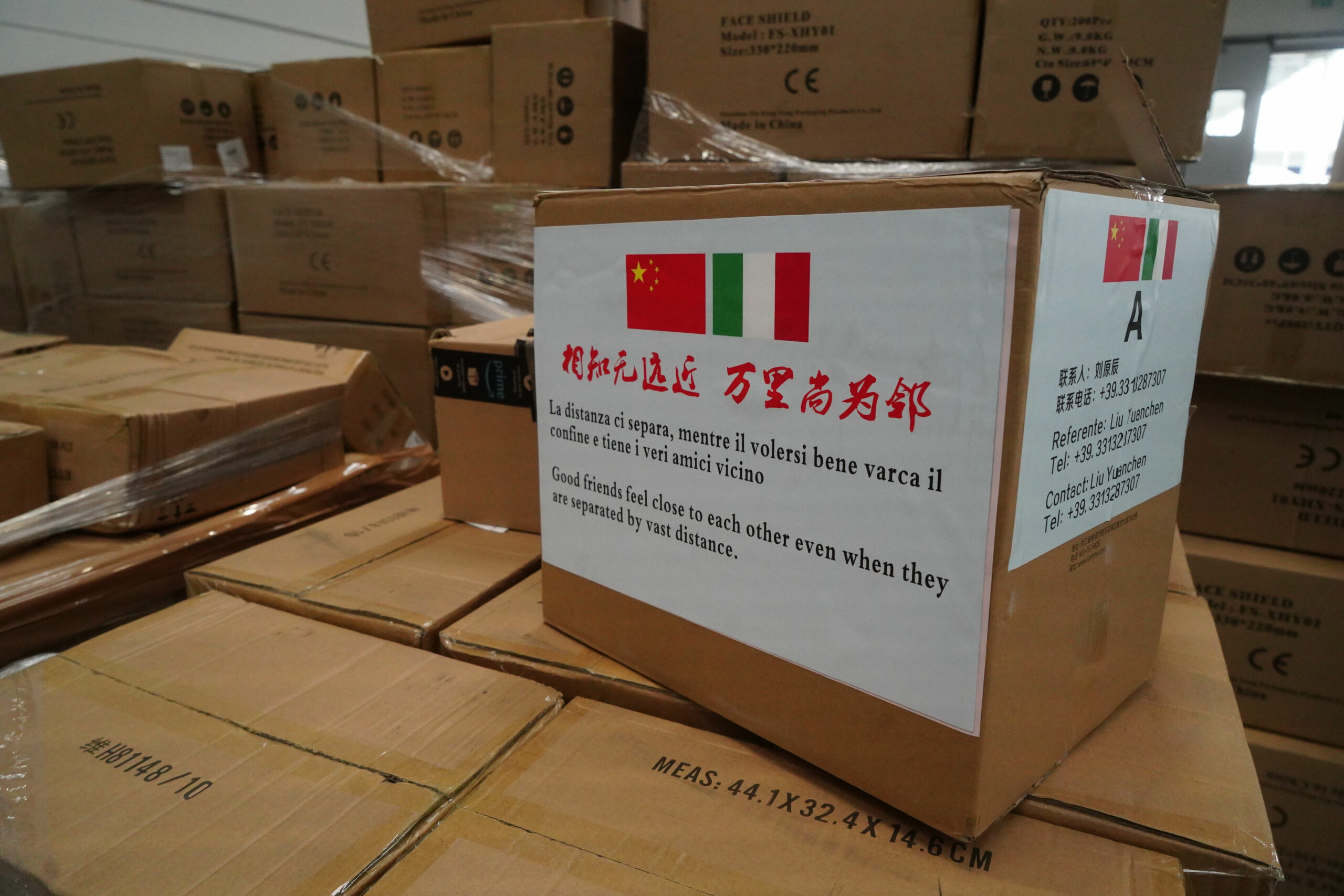“Views of China have grown more negative in recent years across many advanced economies, and unfavourable opinion has soared over the past year,” reads the introduction to the latest Pew poll over 14 countries of the global West.
Perceptions of China has been falling for the past decade, but the trend has accelerated dramatically during the past year. This arguably happened because of Beijing’s strategy in containing the pandemic, as well as its authoritarian and aggressive economic practices.
However, Italy’s negative perceptions are among the most contained. Just 62% of interviewees expressed negative opinions on the Dragon (26% were very negative) while 38% of them has a favourable view. In comparison, 85% of Swedish interviewees slammed Beijing.
Italians are also more prone to condone China’s response to coronavirus (51% favourable, 49% unfavourable). Moreover, 57% of them now think of China – and not the US – as the “world’s dominant economic power”, in line with the rest of Europe, Canada and Australia.
The Italians’ tolerance for China should not be surprising, as it is consistent with less recent surveys. Formiche.net has been chronicling the rise in favour towards Beijing and had noticed its increase in the last year.
According to an April poll by SWG, 52% of Italians saw China as a friendly power. Second place went to Russia with 32% and third to the US with a meagre 17%. The difference with data from 2019 is stark: Beijing gained 42%, Moscow 17%, and Washington lost 12%.
Another report in June, by IAI/LAPS, showed that 60% of Italians saw an economic opportunity in the strengthening of relations with Beijing.
Back in May, our own Roberto Arditti argued that despite the SWG data, China was not winning over the heart of Italians in the same way years of American soft power had done after the war.
All three global superpowers (US, China, Russia) fared poorly with the pandemic, according to Italians; the US is seen as a declining power and China as an ascending one, but the vast majority of Italians reported that they would never live in the latter.
Still, Italy is the odd one out among the global West when it comes to China. This may be explained by its opening to business with Beijing in recent years. In March 2019, the previous government went as far as signing a memorandum of understanding to join China’s Belt and Road Initiative (BRI), also known as the New Silk Road – the first and only G7 member to do so.
Love for Chinese investments in Italy has decreased sharply as of late, but the Chinese government is still trying their damndest to shift the narrative around it.
During the early months of the pandemic, they mounted a massive online propaganda campaign around the shipment of an aid package and a medical équipe; Formiche.net revealed that this effort was sustained by an army of bots on Twitter. Perhaps this explains some of the opinion shifts, considering that the far more consistent American aid – 100 million dollars – was overshadowed by the faster Chinese efforts.
Nonetheless, this Sinophilia doesn’t seem to have reached the current government, as shown by the recent spat with the Chinese ambassador in Rome following the visit of US Secretary of State Mike Pompeo.
Institutional Italy, like much of the global West, is effectively reassessing the role of Beijing on the world stage and starting to decouple from it on matters ranging from 5G to marine ports. Despite this, the Italian fascination with the Dragon still lingers.








